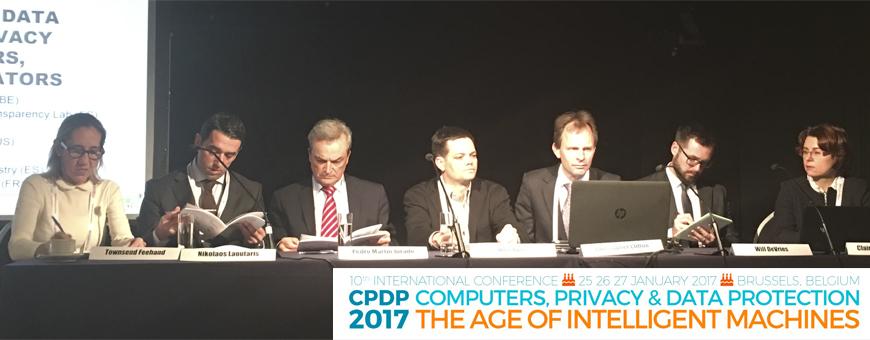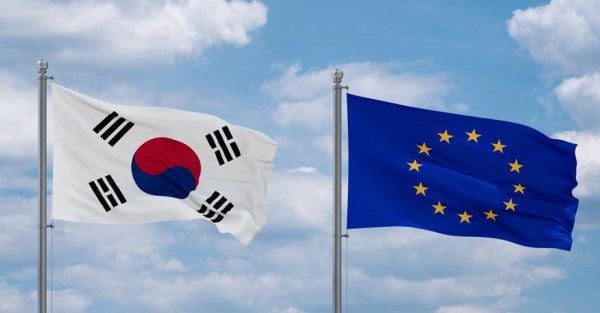Data Transparency Lab Team
 The 10th CPDP International Conference (Computers, Privacy & Data Protection) took place this week in Brussels and counted with the participation of Nikolaos Laoutaris, Founding Member and Chief Scientist at Data Transparency Lab (DTL). DTL is a project lead by Telefónica together with AT&T, INRIA, Mozilla & MIT Connection Science which aims to create a global community of technologists, researchers, policymakers and industry representatives working to enhance online personal data transparency through scientific research and design. One of DTL’s main goals is focused on developing new tools and programs to create awareness and give users back the control of their personal data.
The 10th CPDP International Conference (Computers, Privacy & Data Protection) took place this week in Brussels and counted with the participation of Nikolaos Laoutaris, Founding Member and Chief Scientist at Data Transparency Lab (DTL). DTL is a project lead by Telefónica together with AT&T, INRIA, Mozilla & MIT Connection Science which aims to create a global community of technologists, researchers, policymakers and industry representatives working to enhance online personal data transparency through scientific research and design. One of DTL’s main goals is focused on developing new tools and programs to create awareness and give users back the control of their personal data.
Nikolaos Laoutaris moderated the panel on “Online Advertising: Data Protection and Privacy concerns of users, industry and regulators” and his intervention was focused on the lack of awareness of citizens regarding the management of personal information and their increasing concern about privacy and data protection as a serious risk for the sustainable economic growth of online services.
During the panel organized by the European project TYPES (Towards transparency and privacy in the online advertising business), it was said that: “in 2015, the Eurobarometer study revealed that 63% of EU citizens do not trust online businesses, more than half of the citizens neither like providing personal information in return for free services, nor appreciate the use of their personal data for targeted advertising.”
Moreover, it was stressed that these numbers demand more transparency around the use of personal data in online services and that this situation is affecting online advertising sector.
Additionally, the panel addressed questions such as which are the main concerns of citizens; if we have the right technological and human resources to monitor and enforce the GDPR or to show illustrative examples of an intrusive-discriminatory management of collected personal data.
The panel was led by Towsend Feehand (IAB Europe) and counted with participation of the following panellists: John W. Byers (Boston University); Christopher W. Clifton (Purdue University); Will DeVries (Google); Pedro Martin Jurado (Spanish Ministry of Industry) and Claire Levallois-Barth (Telecom ParisTech).
Regarding data protection and privacy, this Saturday is the 11th Data Protection Day, which aims to raise awareness, promote privacy and data protection best practices. Also, give European citizens the chance to understand how and why their personal data is collected and processed and also know their rights.
Moreover, in 2006 the European Council established Data Protection Day on the anniversary of the Council of Europe’s Convention 108 signature.











